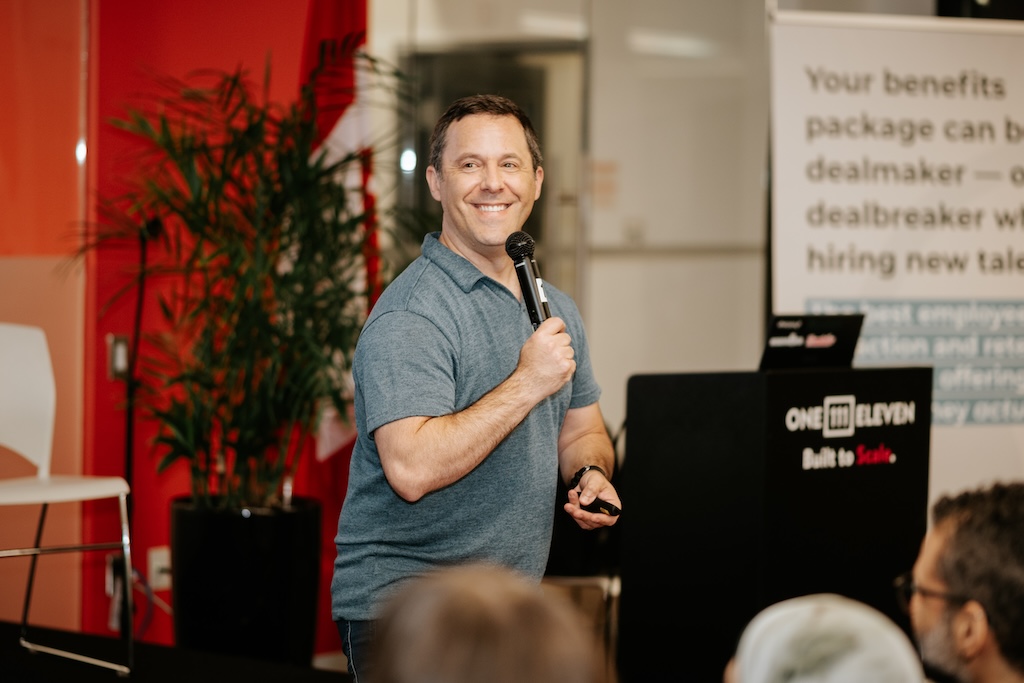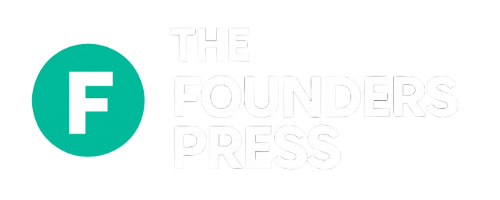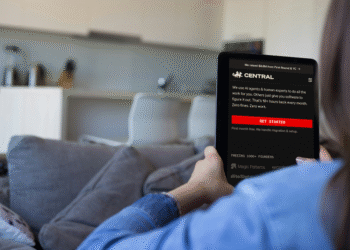
As the workplace evolves with rapid technological advancements, the role of HR is transforming at an unprecedented pace. We asked five tech leaders share their insights on the future of HR, exploring how emerging technologies like AI, automation, and data analytics are reshaping recruitment, employee engagement, and workforce management. Their insights offer a vision of the future workplace, highlighting how HR can harness technology to create a more adaptable, inclusive, and efficient environment for both employees and organizations.
Courtney Cheyne Director of People and Culture at Wagepoint

The role of AI shaping the HR landscape over the next five years is….although there is no replacement for real, human to human contact (really, our biology changes when we make real eye contact with another human!), AI absolutely has a place in the future of HR. There is so much potential for AI to streamline the more administrative and repetitive aspects of HR such as screening resumes or writing job descriptions, and even the service side to support employees through the lifecycle stands to see some huge shifts. Recruitment and Talent Acquisition will definitely benefit from AI, as well as a lot of opportunities in the areas of training and career pathing support.
HR tech can help create a more engaging and seamless candidate experience by….the more you can use tech to automate the more administrative practices, the more you can spend time on the more meaningful interactions, evaluations, and building community. Even reminders and check ins to keep a pulse on each person in the process is valuable – each candidate who applies to your posting (save for the occasional bot) is a human on the other end. Ensuring we’re able to track and manage all of the hundreds of candidates who have applied at every stage so they are informed along the way is critical to positive experience!
Compensation trends this year and beyond include…transparency is no longer a nice to have, it’s fully expected. That goes for both internal and external transparency. It’s important the organizations have taken the time to evaluate their pay bands against the market position they plan to take and ensure their pay practices are equitable, and educate their team members on how they work. This not only leads to fairness and equity, but usually also higher satisfaction with pay once people understand why they are paid what they’re paid against colleagues both internally and externally. I think this is really par for the course now, and organizations should be working to move themselves along the maturity model of these practices.
With the rise of TikTok generation employers can retain top talent by…being authentic. Being open, vulnerable, and clear with people builds trust that we are all just people in an organization trying to do our best. People are looking for a community or a tribe that they can connect with as they accomplish great things, and making them feel that they are a part of that journey, have a voice, and matter is the best way to keep people engaged in the long run!
Marlina Kinnersley CEO at Fortay.ai
The role of AI shaping the HR landscape over the next five years is….leading transformational change! AI will continue to increase efficiency, improve decision-making, and deliver more personalized employee experiences. In the next 5 years, AI will further increase the automation of candidate screening, summarizing employee feedback, delivering critical insights, and providing high-quality coaching for people leaders, which Fortay.ai is already doing! Perhaps most valuable to HR will be how AI supports equitable, data-driven decisions and alignment with people leaders to drive better business results. AI will be our digital, always-on, well-rounded HR expert, continuously monitoring and optimizing employee satisfaction, well-being, and productivity.
HR tech can help create a more engaging and seamless candidate experience by….leveraging personalized company assessments to ensure values alignment and role fit and AI-driven chatbots to answer their questions for a personalized experience. The faster candidates can move through the hiring process, the greater their excitement and engagement will be. Momentum is key! Lastly, AI can be used to analyze candidate data to minimize bias and promote fair and objective assessments, improving the chances of a successful hire and fit between the company culture and talent.
Compensation trends this year and beyond include…more holistic and flexible models where companies offer personalized benefits, equity options, and health and wellness programs to reflect the demand for a sustainable work-life balance. Companies are using location-based pay scales, adopting pay equity analysis tools, and leveraging benchmarked data to ensure they offer competitive offers. As companies compete for the best talent, we will likely see more pay transparency and equitable compensation frameworks used, too! These changes play a critical role in pay equity for all!
With the rise of TikTok generation employers can retain top talent by…committing to delivering a people-first workplace experience across the employee lifecycle while investing in building an inclusive culture that offers flexibility, purpose, and continuous development will win top talent. This generation expects values alignment between what they want and their organization’s values. Providing meaningful work where they can positively impact the business and career pathways for growth will solidify their connection with you – their employer. Employees expect a diverse workforce and will leave for a better one or stay much longer if they are in one. Employers should consider implementing AI-powered tools and offering training, encouraging open feedback loops, building effective and inclusive people leaders, and prioritizing mental health support to retain this generation.
Jim O’Brien Director of Recruiting at BizAnalytica

The role of AI shaping the HR landscape over the next five years is…utilizing advanced applicant tracking systems (ATS) to streamline applications and screening, matching candidates based on skills and past performance through AI, and using chatbot platforms to handle over 1,000 applicants. AI will also enhance community engagement through chatbots that offer ongoing communication, feedback, rewards, and incentives based on referral success and customer feedback, as well as charitable donations. For high-volume job posting, AI will optimize career pages to integrate with all job boards using Boolean strings, while social media and marketing efforts will leverage platforms like LinkedIn, GitHub, Discord, Slack, Facebook, Twitter, TikTok, and Instagram. Influencer marketing will also play a role, with companies like SeekUp securing MSAs with influential figures.
HR tech can help create a more engaging and seamless candidate experience by automating candidate and customer feedback, preventing “ghosting” during the hiring process, and automating the sharing of new job openings.
Compensation trends this year and beyond include a rise in short-term gigs, cash-back rewards, and equity-based commissions as part of employee compensation packages.
With the rise of the TikTok generation, employers can retain top talent by highlight employee achievements and recognition when they reach milestones like promotions, certifications, and revenue targets, while also showcasing their learning and development initiatives that help employees pursue further career advancement opportunities.
Rebecca Graham People, Practice & Fractional HR at BrightIron

The role of AI shaping the HR landscape over the next five years is… no doubt going to be big. We’ll likely see many efficiencies in the recruitment process and an increase in data-driven decision making. There are a lot of powerful HR tools but there continues to be broken links between the systems and the data within them. Without the linkage, critical information is missed, and the employee story is incomplete. AI will be a valuable tool to analyze employee data so that risk can be mitigated, and strategies can be developed. Good AI will enable HR leaders to make decisions quickly with real-time analytics.
HR tech can help create a more engaging and seamless candidate experience by… automating repetitive tasks, providing personalized, real-time feedback, and leveraging data analytics throughout the hiring process. Chatbot tools can answer common questions about job openings, application status, and interview details to candidates in real-time. This improves candidate experience by eliminating wait times, while also reducing the time recruiters spend on repetitive inquiries. Data analytic tools can help recruiters to match candidates with roles that best fit their strengths by providing tailored job recommendations based on traits identified through resume screening. This kind of technology improves candidate experience by ensuring that positions offered will be a good fit based on their skills and interests. It also helps in reducing bias by focusing on data-driven insights.
Compensation trends this year and beyond include… pay transparency and challenges with inflation. In addition to regulatory pressure, many job seekers (especially in younger generations) expect clear information about pay structures before applying to jobs. Companies that openly share salary information may find it easier to attract top talent, as candidates are more likely to apply to organizations that promote fairness and equity. When it comes to inflation, consider offering flexible, personalized benefits packages to help with employee needs, such as wellness programs and childcare support. Additionally, consider compensation strategies outside of salary increases, such as supplemental RRSP matching. This strategy can help to support the purchase of an employee’s first home by utilizing the first-time home buyer’s credit.
With the rise of TikTok generation employers can retain top talent by… embracing engaging communication strategies, offering flexible work arrangements, and creating a strong company culture. Companies can use social media platforms to share engaging content about their workplace culture, employee success stories and job opportunities. Using these platforms can give candidates a window into the company culture and attract candidates who resonate with it. Employers can also consider flexible work environments, such as remote or hybrid arrangements, that cater to the preferences of younger employees who value work-life balance. Finally, fostering a culture that encourages creativity and authenticity can resonate with the younger generation – creating alignment between company and personal values helps employees feel a sense of belonging and commitment to their work.
Jonathan Hillis CEO at Tenure

The role of AI shaping the HR landscape over the next five years is… no doubt going to be big. We’ll likely see many efficiencies in the recruitment process and an increase in data-driven decision making. There are a lot of powerful HR tools but there continues to be broken links between the systems and the data within them. Without the linkage, critical information is missed, and the employee story is incomplete. AI will be a valuable tool to analyze employee data so that risk can be mitigated, and strategies can be developed. Good AI will enable HR leaders to make decisions quickly with real-time analytics.
HR tech can help create a more engaging and seamless candidate experience by… automating repetitive tasks, providing personalized, real-time feedback, and leveraging data analytics throughout the hiring process. Chatbot tools can answer common questions about job openings, application status, and interview details to candidates in real-time. This improves candidate experience by eliminating wait times, while also reducing the time recruiters spend on repetitive inquiries. Data analytic tools can help recruiters to match candidates with roles that best fit their strengths by providing tailored job recommendations based on traits identified through resume screening. This kind of technology improves candidate experience by ensuring that positions offered will be a good fit based on their skills and interests. It also helps in reducing bias by focusing on data-driven insights.
Compensation trends this year and beyond include… pay transparency and challenges with inflation. In addition to regulatory pressure, many job seekers (especially in younger generations) expect clear information about pay structures before applying to jobs. Companies that openly share salary information may find it easier to attract top talent, as candidates are more likely to apply to organizations that promote fairness and equity. When it comes to inflation, consider offering flexible, personalized benefits packages to help with employee needs, such as wellness programs and childcare support. Additionally, consider compensation strategies outside of salary increases, such as supplemental RRSP matching. This strategy can help to support the purchase of an employee’s first home by utilizing the first-time home buyer’s credit.
With the rise of TikTok generation employers can retain top talent by… embracing engaging communication strategies, offering flexible work arrangements, and creating a strong company culture. Companies can use social media platforms to share engaging content about their workplace culture, employee success stories and job opportunities. Using these platforms can give candidates a window into the company culture and attract candidates who resonate with it. Employers can also consider flexible work environments, such as remote or hybrid arrangements, that cater to the preferences of younger employees who value work-life balance. Finally, fostering a culture that encourages creativity and authenticity can resonate with the younger generation – creating alignment between company and personal values helps employees feel a sense of belonging and commitment to their work.
Jeff Waldman Founder at ScaleHR

The role of AI shaping the HR landscape over the next five years is….the role of AI in shaping the HR landscape over the next five years is likely to be transformative, driving greater efficiencies and productivity in all facets of the employee experience – talent attraction, talent engagement and talent retention. AI will enable HR teams to automate administrative tasks, enhance data-driven decision-making, personalize employee experiences, and improve diversity and inclusion efforts by reducing bias. As AI tools become more advanced, HR professionals will shift from administrative roles to more strategic functions, focusing on human-centred initiatives like fostering workplace culture, building meaningful relationships, and supporting continuous learning and development.
HR tech can help create a more engaging and seamless candidate experience by….HR tech can help create a more engaging and seamless candidate experience by streamlining the application process, offering personalized communication, providing real-time updates throughout the hiring journey and eliminating the “black hole effect” in hiring. Automation tools can reduce response times and keep candidates informed, while AI-driven chatbots and virtual assistants can answer questions and guide applicants through complex processes. Additionally, predictive analytics can match candidates to roles that align with their skills and career goals, and interactive assessments can offer a more dynamic, engaging way to showcase their abilities, ultimately enhancing the overall candidate experience.
Compensation trends this year and beyond include……compensation trends this year and beyond include a growing emphasis on pay transparency, hyper-flexible benefits, and personalized compensation packages that cater to employees’ diverse needs and priorities. Companies are increasingly offering remote and hybrid work allowances, mental health support, and wellness stipends as part of their total rewards strategies. Additionally, there’s a rising focus on equity and inclusion in compensation, with efforts to close pay gaps across different under-represented groups. Performance-based bonuses and skill-based pay are also becoming more prominent as companies look to retain top talent in a competitive job market.
With the rise of TikTok generation employers can retain top talent by…employers can retain top talent by embracing a hyper-flexible, transparent, and purpose-driven work environment. This generation values authenticity and looks for organizations that prioritize mental health, diversity, and work-life balance. Employers can also offer opportunities for continuous learning and career growth, leverage social media and digital tools for real-time feedback, and create engaging, collaborative workspaces that foster creativity and innovation. Further, promoting a strong company culture with a focus on social impact and offering flexible work arrangements, like remote or hybrid options, will be key to retaining this digitally savvy talent pool.
Do you have specific insights to share with our tech community? We would love to hear your thoughts.








